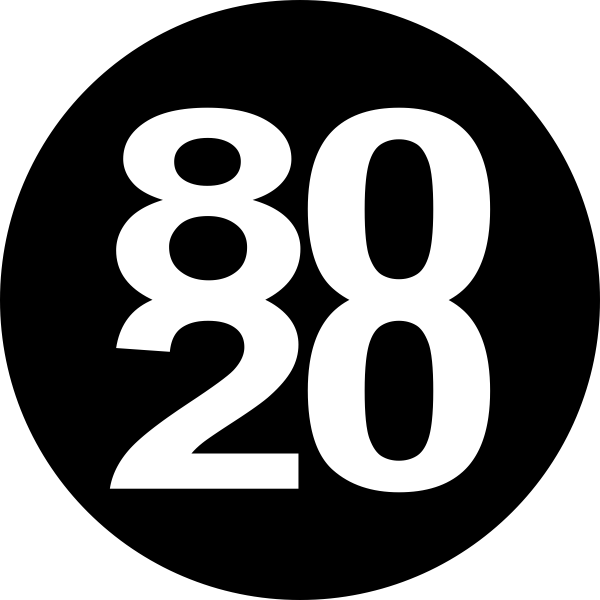80/20 Rule in
Studying

Focus on Core Topics and Use Active Recall for Better Exam Results
You can spend hours with your books and still feel nothing is sticking – or study less time and get much better results. The difference is usually how well you focus on the material, questions, and habits that matter most. That’s the 80/20 Rule in studying: roughly 20% of topics and study behaviors create about 80% of your exam performance.
Once you know what that vital 20% is for your subjects, you can design a smarter, lighter study approach instead of just working longer.
Step 1: Find the 20% of Content That Will Appear in 80% of Questions
Most courses have “heavyweight” topics: core concepts that show up again and again in lectures, assignments and exams.
- Review syllabus, learning objectives and past exams to spot recurring themes.
- Notice what your teacher emphasizes or revisits in class.
- Highlight 3–7 main ideas per subject that other details seem to build on.
Real-life example: In a statistics course, topics like distributions, hypothesis testing and confidence intervals may make up a small portion of the syllabus pages but dominate questions. Spending more time understanding these pays off far more than treating every subtopic equally.
8020 move: For each subject, write a one‑page list of “must‑understand” concepts. Make sure your study time always returns to these, instead of getting lost in minor details.
Step 2: Use High-Yield Study Methods for Those Topics
Not all study techniques are equally effective. Reading and highlighting alone often give the illusion of learning without real retention.
- Use active recall: close the book and try to explain a concept in your own words or write it from memory.
- Practice spaced repetition on key formulas, definitions and facts.
- Do practice questions that mirror the format of your exams, especially for your core 20% topics.
Real-life example: A student studying anatomy stopped rereading chapters and instead quizzed herself with flashcards and diagrams focused on the systems most tested. Her scores improved even though she spent less total time “studying.”
8020 move: For each core topic, create a small set of questions or flashcards and practice answering them without looking. This targets the small amount of effort that produces most of your understanding.
Step 3: Design Your Time Around Peak Focus and Fewer Distractions
A fraction of your day is when you can actually concentrate well. Using that time wisely is more important than adding more low‑quality hours.
- Notice when you feel most alert (morning, afternoon, evening) and schedule your hardest subjects then.
- During these blocks, remove predictable distractions: put your phone away, disable notifications, choose a quiet space.
- Use short, focused sessions (e.g. 25–50 minutes) with clear goals, followed by brief breaks.
Real-life example: When Jamal moved his most demanding study to early mornings and stopped checking social media during that window, he found he could cover the same material in far less time.
8020 move: Pick one 60–90 minute block each day to dedicate to core topics, with no multitasking. Protect this time like an important appointment.
Step 4: Fix the Small Number of Patterns Behind Most of Your Mistakes
Often, 80% of exam errors come from a small set of weaknesses: misreading questions, rushing calculations, misunderstanding one or two concepts.
- After tests or practice papers, review wrong answers and group them by type of mistake.
- Identify 2–3 recurring issues (e.g. careless arithmetic, not showing work, confusion about a specific topic).
- Create a mini‑plan to address each: slow down on certain question types, practice that concept more, or use a checklist before submitting.
Real-life example: When Lina noticed that most of her errors in physics came from unit conversions and sign mistakes, she added a quick “units and signs” check to her workflow. Her grades rose without needing to double her study time.
8020 move: On your next practice test, spend as much time reviewing why you got questions wrong as you did answering them. Focus your study on the patterns you find.
Step 5: Protect Your Energy and Reduce High-Stress Habits
Studying is harder when you’re exhausted, anxious or burned out. A few lifestyle choices and habits can dramatically change how effective your study time feels.
- Aim for consistent sleep; all‑nighters often hurt more than they help.
- Avoid starting major study sessions already hungry, overly caffeinated, or distracted.
- Replace last‑minute cramming with shorter, more frequent review sessions in the days or weeks before exams.
Real-life example: Switching from marathon weekend cram sessions to shorter, regular study during the week left Diego less stressed and improved his recall during exams.
8020 move: Change one high‑stress habit (like staying up very late before tests) to a more sustainable pattern. Even a small upgrade here can influence most of your study performance.
Studying Smarter with the 80/20 Rule
Studying more hours doesn’t always mean learning more. By concentrating on the most important topics, using effective techniques, organizing your time around focus, fixing your main mistake patterns, and taking care of your energy, you act on the handful of factors that produce most of your academic results.
The 80/20 Rule doesn’t replace hard work – it makes sure your hard work goes where it counts, so you can get better grades and understanding without burning out.
